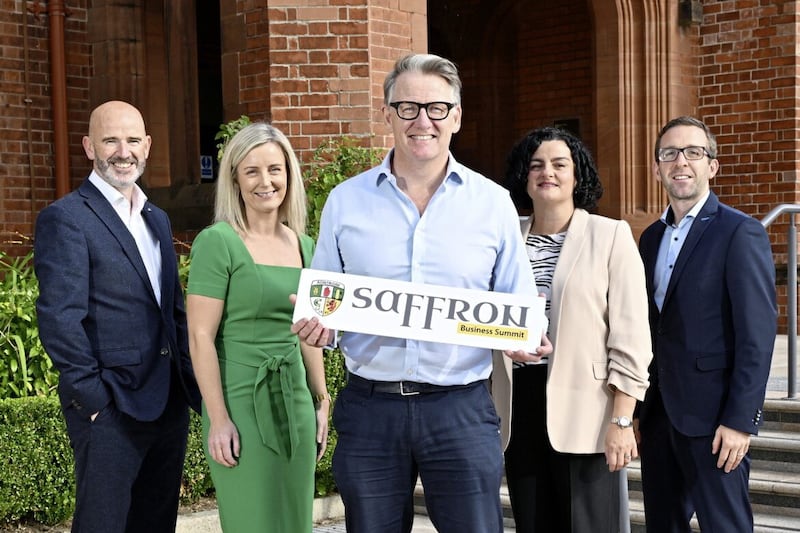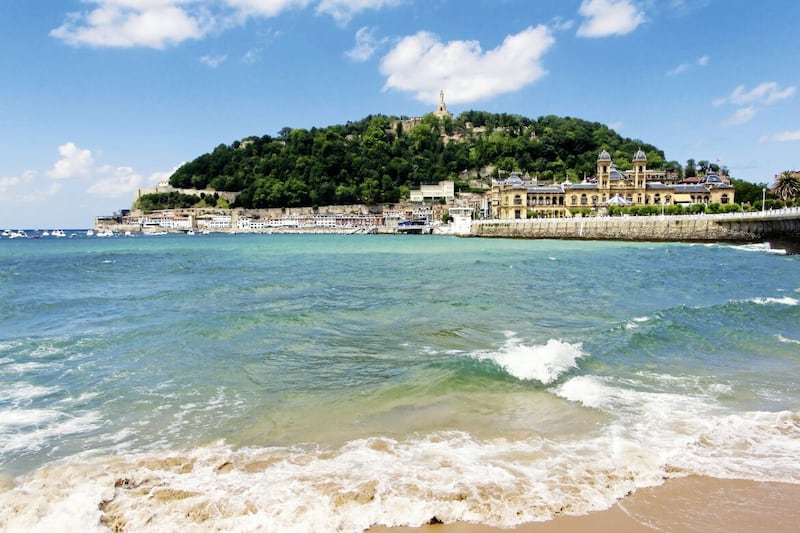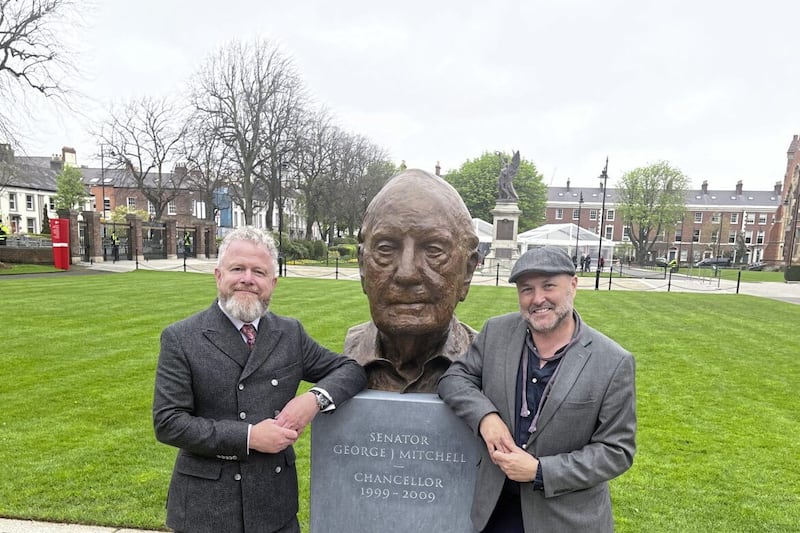WHEN I think about it now, I wonder did my da start buying Renault cars after we joined what was then the EEC in 1975. Before then, and outside of my childhood memories, I’m told we had Austin Cambridges and Morris Minors. My earliest memory though is of a white Renault 12 estate. We then had a green one and progressed on to a red Renault 16 hatchback and later a Renault 21.
Back then, cars seemed to matter more and cars also seemed to need more maintenance then too. And when we needed a new exhaust or a service, we’d head down to Kennedy Way to DC Exhausts to get the car sorted. The DC business, which is still there, was founded by one of Belfast’s greatest entrepreneurs, Paddy McKillen, who passed away last month at the age of 98.
The McKillen name is well known in Irish and British business circles, probably more because Paddy’s son, another Paddy, has added to his father’s legacy in a very considerable way and now his son, Paddy junior, along with his business partner, Matt Ryan, are building Ireland’s largest and most successful hospitality business, the Press-Up group. They have just announced plans to bring their Dean Hotel brand to Belfast in one of the most exciting regeneration projects the city centre has ever seen.
I’ve written about the middle Paddy, who we’ll call Paddy Senior, in this column before. I’m not afraid to admit he is one of my business heroes. If you haven’t watched ‘The Mayfair Hotel Megabuild’ on the BBC iPlayer yet, go watch it. It tells the story of how Paddy Senior managed to add eight floors (five in the basement and three on top) to one of the most famous hotels in the world, Claridges, without closing it!
Honestly, if you have a remote interest in business, construction, innovation or the relentless pursuit of quality, that three-part programme is for you. It was one of the most interesting documentaries I’ve ever watched, and Paddy McKillen is at the centre of it, directing, cajoling and inspiring the mass of engineers, architects, designers and builders of different types (with many companies from here involved).
Paddy Senior’s drive is legendary in the development world as his commitment; the story of his fight against Nama and then his legal battle to retain control of Claridges and two other major London hotels, the Berkeley and the Connaught, could fill this paper.
Today, though, I just wanted to focus on where it all started.
Before Kennedy Way was an important link road, it was a lane through Bell’s farm. Some of the outbuildings of the old farm are still there, part of a tyre garage, up beside the Andersonstown Road roundabout. As west Belfast expanded and the land was bought for the road expansion, Paddy McKillen saw his chance to build a garage that could service the growing numbers of cars on the road in the early 1960s.
People told him he couldn’t build on what was then a swamp, a bit like people telling his son over 50 years later, he couldn’t go 33 metres underground below Claridges. The McKillens clearly don’t get told what they can’t do. Paddy found a way to build on the swamp and created DC exhausts with a commitment to customer service that was before its time and a factory which manufactured the exhausts with a combined employment by August 1969 of 150 people.
That was a long way from where Paddy had come. He was born in 1924, the sixth of eight children to John and Catherine McKillen of 24 Lucknow Street, off the Falls Road, a tiny house with no heating other than the fire and an outside toilet. Paddy grew up acutely aware of and constantly exposed to the discrimination against Catholics in the Belfast of the time. He had lost his mother when he was five and was raised by his aunts Maggie, Minnie and Nelly, but much later in his book ‘A Full Life’, he was able to reflect on how lucky he was to have a ‘remarkable’ father, his aunts who doted on him and a teacher, Michael McClafferty, who convinced young Paddy and his classmates that the ‘struggle for a better life was worthwhile, that we had reason to hope.’
Paddy didn’t hang around, and while he had trained in sheet metal work, he set off on his entrepreneurial career at 21, never to look back. The business grew and grew, but by the early 1970s, the Troubles were so bad, Paddy brought the family to Dublin and opened his first branch of DC Exhausts in Inchicore.
And so the business expanded rapidly with serious investment in property coming too, until in 1990, the exhausts business was sold to Kwik Fit, owned by Tom Farmer, who Paddy had been supplying exhausts to since 1971. With the children up and working, Paddy was able to relax a little and eventually in 2012, he and his beloved Peggy moved full time to Provence in France, where Paddy Senior had bought a vineyard, now Chateau La Coste, a hotel, art park and vineyard destination that has to be seen to be believed.
In 2019, probably our greatest and most celebrated living artist, Colin Davidson, was asked to make a portrait of Paddy (pictured here). Colin told me last week that they clicked immediately and two things stuck him most about Paddy: his love for his family and his love for Belfast.
Paddy was thrilled that Colin, another Belfast man, was making his portrait and in their conversations, Colin told me that Paddy had zero interest in talking about what he had achieved in business and was much more interested in talking about his family and his native city and west Belfast in particular where the DC Business Park is still owned by the family. That dignity and his love for his family and his affection for Belfast shines through in the painting, I think.
After all that happened last week with the Windsor Framework and so on, I wondered should I write about those issues today but in the end, business and the economy here is built by people. People like Paddy McKillen who has inspired generations after him and leaves a long legacy of job creation and economic progress in a part of the city that needed it most. And not forgetting of course, all those exhausts which Paddy’s people fitted on to my da’s succession of not-so-reliable Renaults. Though, to be fair, we did have some great childhood holidays crushed into the back of those cars.
:: Paul McErlean is chief executive of MCE Public Relations
:: Next week: Brendan Mulgrew







